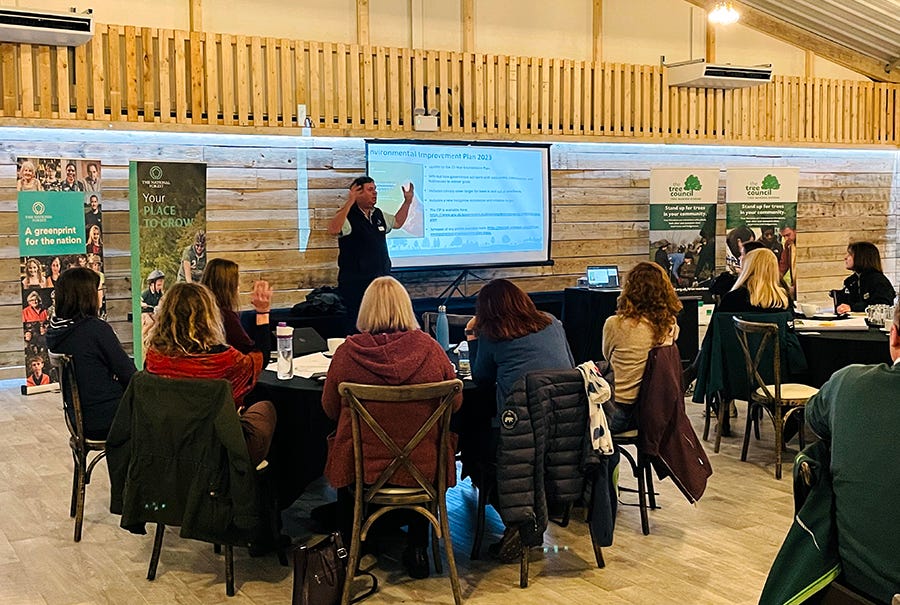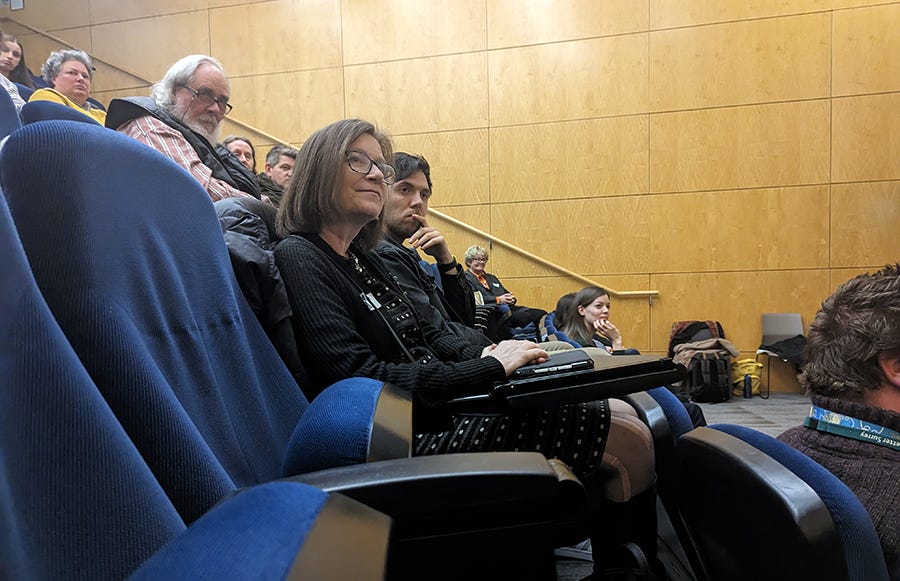TAWS on tour: Talking tree strategies nationwide
Every local authority needs one...

It’s said that failing to plan is planning to fail, and this is true for how we manage and establish trees, woodlands, and hedgerows. At the local level, it’s no mean feat to navigate fast-paced national policy, challenging targets, a changing climate, and pests and diseases. So how can local authorities keep on top of their core duties, while making the most of current opportunities for tree planting and woodland creation?
One key action they can take is to create a local Trees and Woodland Strategy (TAWS) in collaboration with key stakeholders. Done well, this can act as a roadmap to a thriving local treescape that benefits people and nature.
TAWS Toolkit Tour
In January this year, we published the Trees and Woodland Strategies (TAWS) Toolkit, a step by step guide to developing and delivering a strategy. Funded by Defra, the toolkit was co-created by The Tree Council, Fera Science, Forest Research, the Forestry Commission, alongside local authorities. But its publication was just the start of the story! Since then, we have embarked on a series of four regional workshops across England – our ‘TAWS Tour’.
We have been blown away by the turn-out at each of our workshops, which we held in Leeds, the National Forest, Surrey, and Exeter. More than 120 people joined us in total, from local authorities, key agencies, and sector organisations, like the Woodland Trust, the Forestry Commission, Natural England and the Environment Agency. We hope this spirit of collaboration continues long into the future! Just like our trees, we are stronger and more resilient when we are connected and supported by a wider community.
It was a joy to meet so many people who are passionate about their local treescapes and keen to develop new and improved strategies all across England, from county councils to boroughs and districts, towns and cities. We so appreciate the open and honest feedback about the toolkit and the challenges of developing and delivering TAWS. This will help us to shape some online sessions in the autumn, tackling key themes such as funding and stakeholder engagement.
Learning together
The toolkit contains guidance for each stage of a TAWS lifecycle: getting started, developing a strategy, and delivering it. While we are yet to fully process the workshop findings, it seems that a large proportion of local authorities are currently at the developing stage, or reviewing an existing strategy.

So, there are clear opportunities to make a positive difference. However, it was emphasised that there is a wide disparity in levels of resourcing, both in terms of financial budgets and numbers of tree officers within a local authority. This can lead to significant challenges.
For me, one of the best things about the workshops was seeing the support and knowledge-sharing between the local authorities and other organisations who came along.
Following the event in the National Forest, a city council representative said: “I felt we stimulated some really great thoughts on our table. I came back with a good list of actions and feel fired-up to push forward on our strategy review - thanks!”

We encourage anyone interested in trees and woodlands to check out the TAWS Toolkit. In particular, have a look at the ten cases studies, that showcase a diverse range of examples from local authorities across England and demonstrate that every step forward is worthwhile. We hope that this knowledge and experience will provide a source of inspiration for many more local authorities.
What’s next?
From all of the workshops, we have reams of notes that our research team will review carefully to guide our next steps. We hope to hold online workshops later in 2023, providing guidance and discussion about the most pressing challenges facing local authorities.
Jess Allan is The Tree Council’s Science & Research Projects Manager. To find out more about The Tree Council, please visit treecouncil.org.uk
Further information
You can review Somerset Council’s recently developed Tree Strategy here: https://www.somerset.gov.uk/environment-and-food-safety/climate-and-ecological-emergency/somersets-climate-emergency-strategy/.
The Forestry Commission, Woodland Creation Partners and England’s Community Forests offer a range of grants for tree planting and woodland creation. The grants cover tree planting, planning, maintenance, and tree health. They are available for farmers, landowners, public bodies, local authorities and environmental groups. You can find out more on page 44 of the Toolkit.
The Tree Council also offers a range of grant opportunities for community planting or planting in schools.
MORE Jess Allan: Pest intentions: Managing Oak Processionary Moth in the UK



